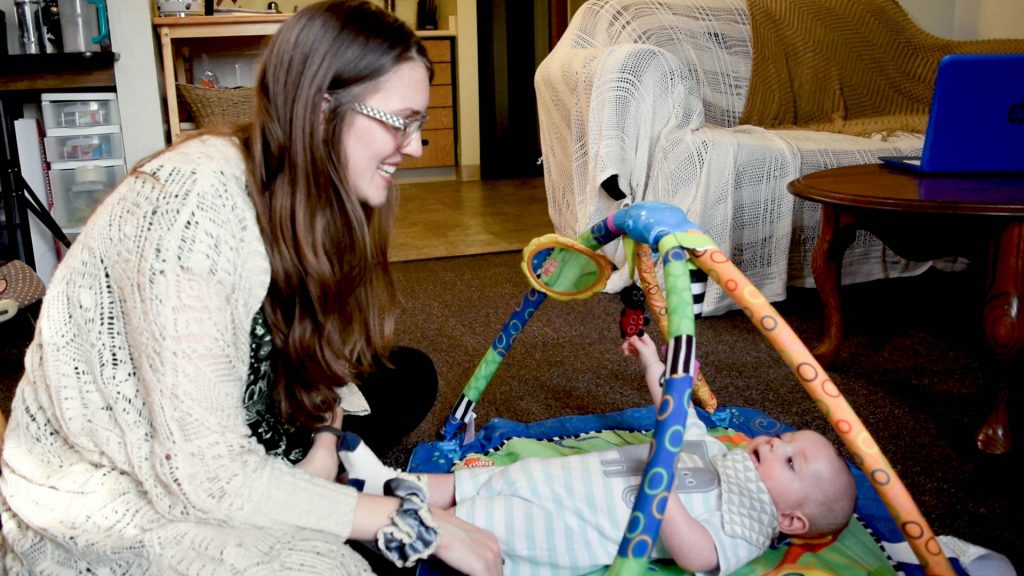
Editor’s note: this story pairs with “Social services, local resources provide aid to student parents”
BYU public health major Autumn McConeghey didn’t have to worry about changing diapers, feeding a baby or fitting homework in around nap time before the fall semester began last September. Now that she has a son, her schedule is very different.
McConeghey — a junior from Windsor, California — is just one of several BYU students who are both students and parents. She and her husband, Aaron, have some unique challenges as they raise their children while going to school.
“Probably one of the main challenges that I face being a student and a parent is being good with time management and adjusting to a new schedule,” McConeghey said.
BYU School of Family Life professor Laura Padilla-Walker said the college student-parent demographic is not very common outside the LDS community, so there hasn’t really been any research done on this group.
“Most college students aren’t even married, let alone having children,” Padilla-Walker said.
According to the BYU Y-Facts website, 26 percent of BYU students are married. There is no data available on how many of these married students have children.
Padilla-Walker said the most important thing college students who are also parents can do is to work together.
“One of the benefits of both parents being in school is that hopefully schedules are relatively flexible and mom and dad can balance their schedules so one parent is with the child most of the time,” Padilla-Walker said. “Working together and finding time for one another is also key to maintaining a healthy marriage and optimal parenting.”
This strategy has worked for human development senior Megan Winters and her husband, Kyle, who is also a BYU student.
“For the majority of my classes, my husband isn’t in class, so he watches her. But just for a short amount of time, our classes overlap, and so my brother watches her,” Winters said.
Some students aren’t so lucky; they don’t have a spouse who can trade off watching their children or family members nearby who can help.
One thing theater education senior Nicole Schofield struggled with after giving birth was figuring out care for her 15-month-old son, Bryce. Her husband, Mike, who is not a student, works full-time and can’t be with Bryce while she’s at school.
“I kinda thought that I would be able to bring him with me to all of my classes my first semester back when he was four months old, but only two professors were okay with it,” Schofield said. “I had to scramble at the last minute to find a daycare.”
For Winters, preparing financially for her pregnancy and postpartum life was a priority. She found the BYU Family Finance class to be particularly helpful.
“(The class) taught us how to budget and I think that was the biggest thing because after you have a baby your budget totally changes. You’re now having to get diapers and wipes, and (children) go through clothes really fast, so just learning how to budget those things really helped me,” Winters said.
Winters also said getting estimates from her insurance company of hospital bill costs was helpful so she and her husband could know how much money to save.
In terms of raising children, Padilla-Walker said it’s important to make sure parents are spending quality time with a child is still good, even when they are students trying to juggle a lot of priorities.
“Put down your phone or your textbook and give your child your full attention,” Padilla-Walker said. “Quality parenting is more important than quantity, so if you feel like you’re being pulled in many directions and don’t always have the amount of time you desire with your child, make sure that the time you do have is of high quality.”
McConeghey may be busier than she was before she had a child, but she has optimism for the future. She encourages other student parents to remember they can do hard things.
“Just take into account that you won’t be able to do all of the things you used to do, but that you can get all the important things done, and to not hold yourself to outrageous or too-high expectations,” McConeghey said.
McConeghey describes being a student and a parent in the video below.




